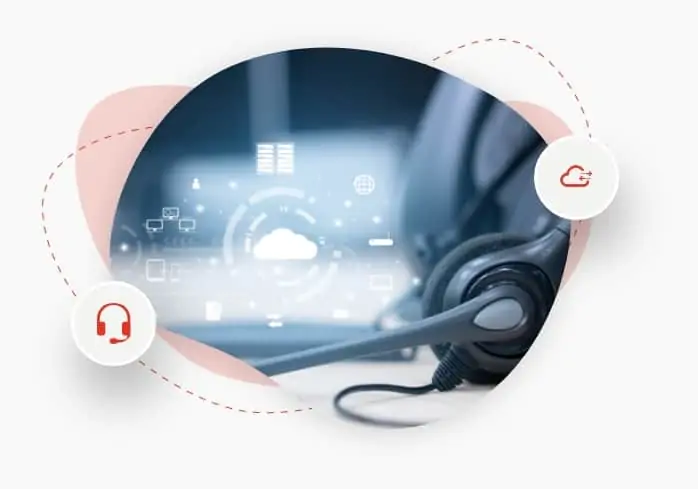Cloud Connectivity is the talk of the town. It is the latest technology that's in vogue. In India, when businesses struggled to find a foothold with the onslaught of the pandemic, cloud technology came to the rescue. It helped organisations survive the rapid changes and weather the storm with remote working, which instantly became the norm.
Cloud Telephony is proving to be a robust and reliable solution that's rendering traditional telephony redundant. It is an intelligent replacement for on-premise PBX systems that require extensive infrastructure like wiring and cables. Here's a quick look at how cloud telephony can help businesses:

Cloud Telephony comes loaded with a host of tools that make it an omnipotent solution for modern communication. Let's take a look at each tool at its distinctive features.
1. Interactive Voice Response or IVR
Cloud IVR is an automated telephony process that uses pre-recorded automated messages and call menus. The IVR system reroutes calls to the preferred agent and eliminates the need for a live operator. Customers can connect with the right department, make payments, etc., without interacting with a live operator.
Features:
IVR also allows agents to prioritise complex calls that require a high level of personalised attention.
2. Virtual Number
A virtual phone number will not have a physical phone line associated with it, but it can give an impression of having local numbers across the areas of business operations. For example, a business based in India with clients in the USA can have a virtual number in New York or Chicago without maintaining a fixed phone line in these cities. Additionally, when a virtual number is tied to a virtual office, it enables a global presence for the business.
Features:
3. Toll-free number
Toll-free numbers enable customers to use a free-of-cost communication channel to connect with the business when the need arises. Therefore, it is a convenience and an entity that adds prestige and recognition to a brand or business. Most toll-free numbers in India start with 1800, followed by an easy-to-remember number pattern.
Features:
4. Bulk SMS
Bulk SMS allows businesses to simultaneously text thousands of customers in a matter of seconds and expect a response from many of them. The tool is a great way to a communication channel for marketing and transactional messages. Unlike emails, SMS's are easy to access. They have a higher open rate than emails because they are concise and easy to read.
Features:
Using bulk SMS increases engagement dramatically and delivers the business message instantly.
Pulse unified communications service provider is a highly reputed cloud telephony provider in India. We provide a wide range of cloud-based communication services to businesses of all sizes. To learn more about our cloud telephony tools, contact our team.